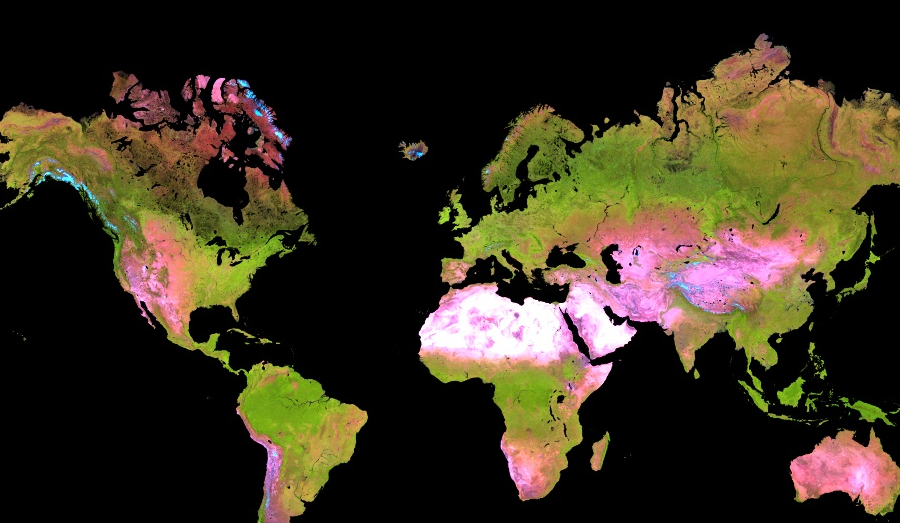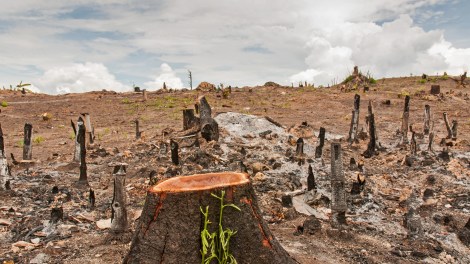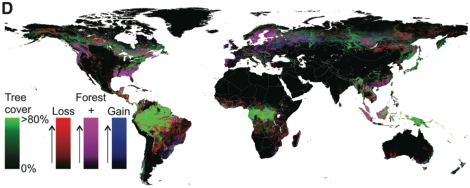A little more than 300,000 square miles of forest was established or replanted worldwide between 2000 and 2012. Unfortunately, almost 900,000 square miles was destroyed during the same time period — logged, ravaged by fire, or attacked by insects.
Those are the main conclusions of a study that examined hundreds of thousands of images snapped by the U.S. government’s Landsat satellites. Academic researchers partnered with Google staff to produce stunning maps displaying the world’s forests and areas that have been deforested or reforested since 2000. Those maps were used to produce the following short videos:
About a third of the deforestation occurred in the tropics, and half of that was in South America. Logging and clearing of land for farming were responsible for much of the loss. Hearteningly, the researchers found that deforestation has been slowing down in Brazil, where worldwide concerns about the loss of the Amazon have helped spur domestic efforts to save the rainforest. But that slowdown was offset by increasing losses in other countries.
“Although Brazilian gross forest loss is the second highest globally, other countries, including Malaysia, Cambodia, Cote d’Ivoire, Tanzania, Argentina, and Paraguay, experienced a greater percentage of loss of forest cover,” the scientists wrote in the paper, published Thursday in Science. “Given consensus on the value of natural forests to the Earth system, Brazil’s policy intervention is an example of how awareness of forest valuation can reverse decades of previous wide-spread deforestation.”
The tropics lost more forest cover during the study period than any other region. The second-worst hit were the boreal forests of spruce, fir, and larch in and around the Arctic, with fire the leading cause. Previous research has shown that these forests are burning at a rate not seen in at least 10,000 years, with climate change increasing temperatures and drying out the landscape.
That wasn’t the only worrisome climate-related finding in the new paper. The mountains of the American West are losing forests due not only to logging, but also because of fire and disease — with mountain pine bark beetles marching up mountains as temperatures warm, feasting on banquets of ill-prepared pines.
The loss of forests is making it even more difficult for the Earth to suck back up all the carbon dioxide that we’re pumping into its atmosphere.
Here’s a non-interactive version of the online map:





